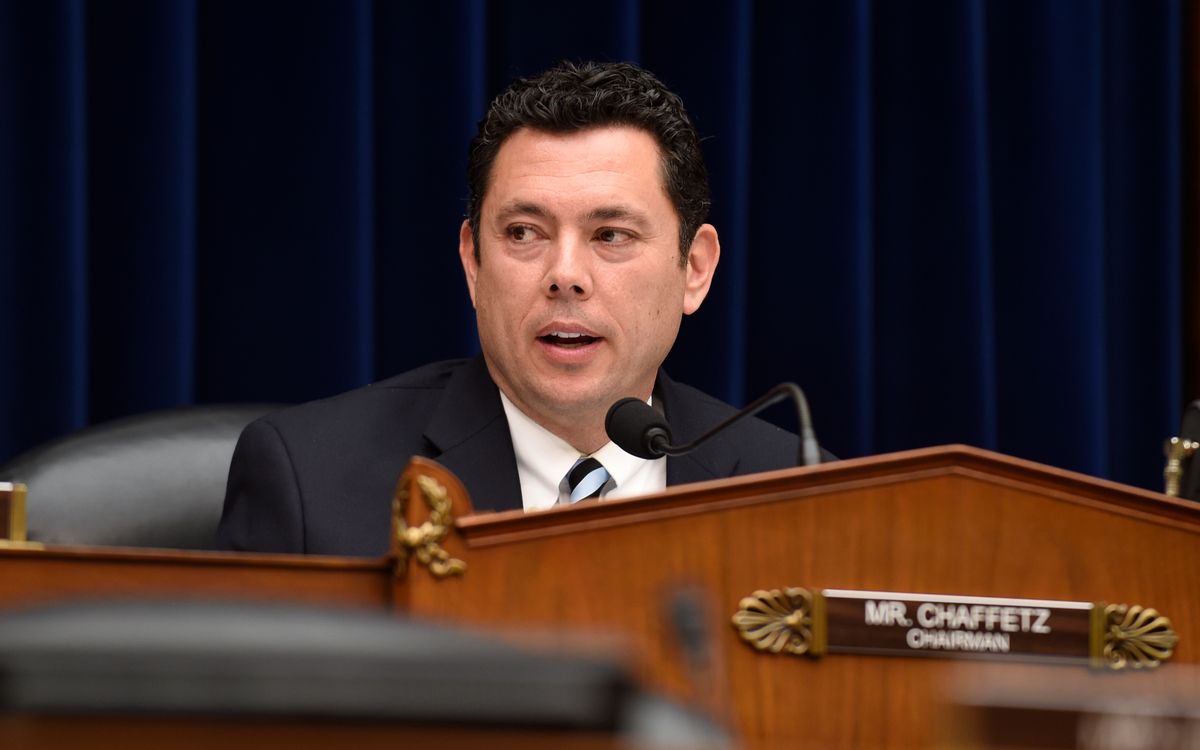When faced with the choice of pressuring Donald Trump on his tremendous conflicts of interest or standing behind the president-elect, House Republicans are going for a third route: targeting the voices in the federal government that are objecting to Trump's business-politics overlap.
Jason Chaffetz, the head of the House Oversight Committee and one of the chief investigators into Hillary Clinton, is threatening to subpoena Walter Shaub, director of the Office of Government Ethics, if Shaub doesn't participate into an interview. Chaffetz told Politico that he believes Shaub is "acting prematurely" by calling Trump's half-hearted efforts to divest from his business "meaningless."
“He’s rendering opinions publicly that really cause you to scratch your head," Chaffetz said, adding that Schaub isn't doing "thorough looks" of Trump's businesses. "We need the Office of Government Ethics to act ethically. Ironically, that’s not what they’re doing.”
Donald Trump hasn't provided his tax returns, which would provide insight into any possible conflicts between the Trump Organization and the White House.
“He is coming in. This is not going to be an optional exercise,” Chaffetz told Politico. He said he expected a meeting within a few weeks.
Schaub told the Brookings Institution, "You don't hear about ethics when things are going well" in a Wednesday speech.
"Stepping back from running his business is meaningless from a conflict of interest perspective," Shaub said. "The idea of setting up a trust to hold his operating businesses adds nothing to the equation. This is not a blind trust — it's not even close."
On Wednesday, Trump gave an absurd press conference in which he somehow managed to share, via an attorney, his plan for the Trump Organization while he serves as president. The attorney said that Trump would place all of his investments and assets in a trust and hand control of the Trump Organization to his sons, who will be monitored by an "ethics adviser" who will join the team to review any future deals. As Salon's Simon Maloy summed it up:
The president will still have his financial interest in the company, the people running it will be his blood relatives, and the person charged with conducting internal ethics reviews will be an employee of the Trump Organization.
At the Brookings Institution, Shaub found himself explaining his office's Twitter activity, which made headlines after the election when its Twitter handle sent messages to Trump about his apparent conflict of interests. Shaub spent most of his speech, however, sending a new message to the president-elect.
"The only thing this has in common with a blind trust is the label, 'trust.' His sons are still running the businesses, and, of course, he knows what he owns," Shaub said. "The idea of limiting direct communication about the business is wholly inadequate. That's not how a blind trust works."



Shares